Join us on Patreon! https://www.patreon.com/MichaelLustgartenPhDDiscount Links: Epigenetic, Telomere Testing: https://trudiagnostic.com/?irclickid=U-s3Ii2r7x…
Category: genetics – Page 179
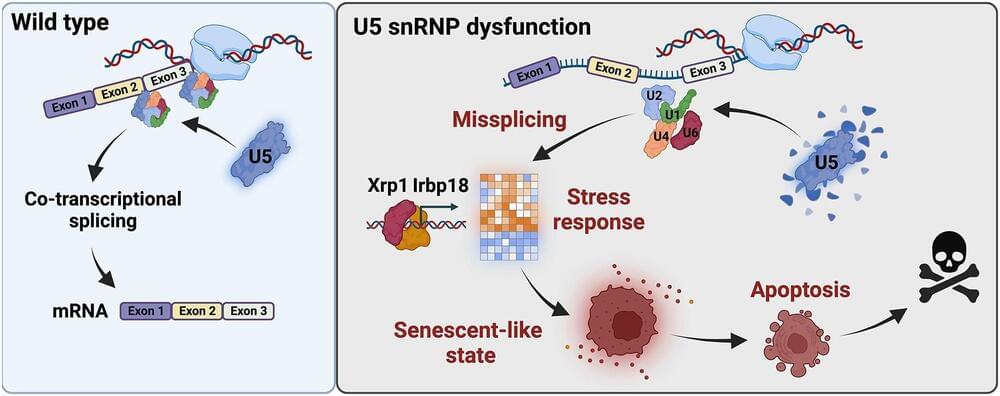
Team discovers mechanism that protects tissue after faulty gene expression
A study at the University of Cologne’s CECAD Cluster of Excellence in Aging Research has identified a protein complex that is activated by defects in the spliceosome, the molecular scissors that process genetic information. Future research could lead to new therapeutic approaches to treat diseases caused by faulty splicing.
The genetic material, in the form of DNA, contains the information that is crucial for the correct functioning of every human and animal cell. From this information repository, RNA, an intermediate between DNA and protein, the functional unit of the cell, is generated. During this process, the genetic information must be tailored for specific cell functions. Information that is not needed (introns) is cut out of the RNA and the important components for proteins (exons) are preserved.
A team of researchers led by Professor Dr. Mirka Uhlirova at the University of Cologne’s CECAD Cluster of Excellence in Aging Research has now discovered that if the processing of this information no longer works properly, a protein complex (C/EBP heterodimer) is activated and directs the cell towards a dormant state, known as cellular senescence. The results appear under the title “Xrp1 governs the stress response program to spliceosome dysfunction” in Nucleic Acids Research.
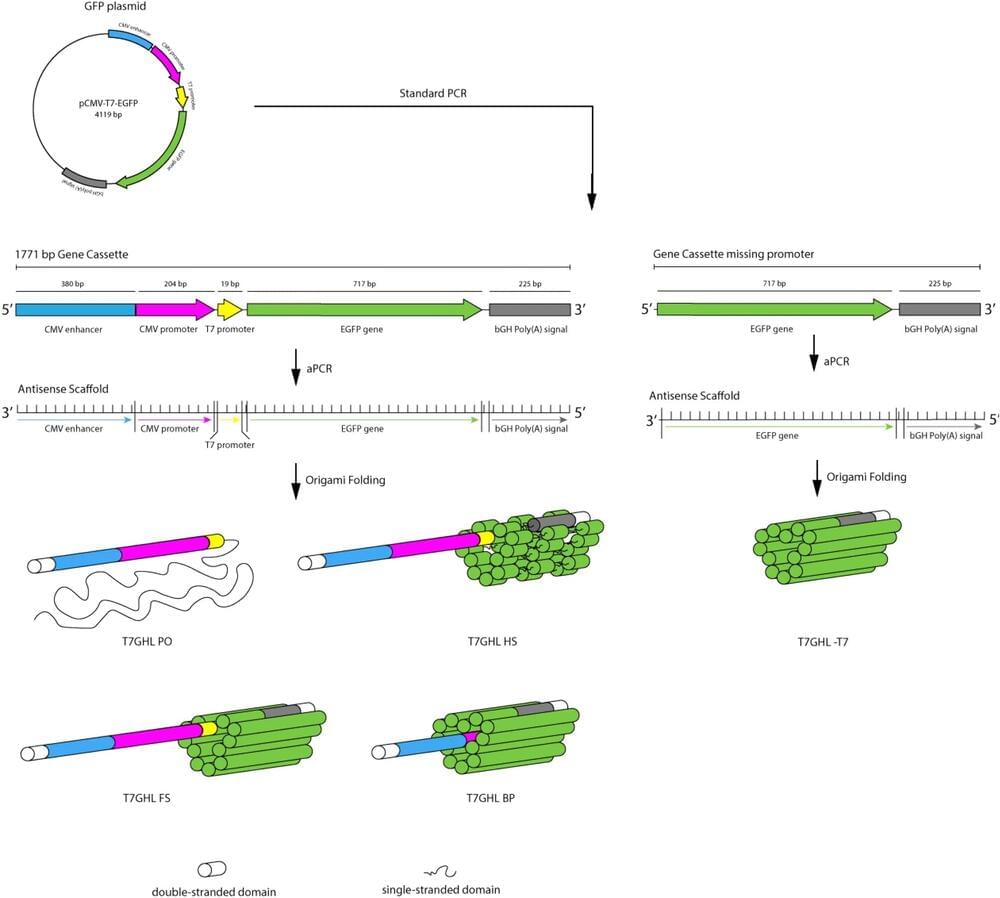
Building a DNA nanoparticle to be both carrier and medicine
Scientists have been making nanoparticles out of DNA strands for two decades, manipulating the bonds that maintain DNA’s double-helical shape to sculpt self-assembling structures that could someday have jaw-dropping medical applications.
The study of DNA nanoparticles, however, has focused mostly on their architecture, turning the genetic code of life into components for fabricating minuscule robots. A pair of Iowa State University researchers in the genetics, development, and cell biology department—professor Eric Henderson and recent doctoral graduate Chang-Yong Oh—hope to change that by showing nanoscale materials made of DNA can convey their built-in genetic instructions.
“So far, most people have been exploring DNA nanoparticles from an engineering perspective. Little attention has been paid to the information held in those DNA strands,” Oh said.
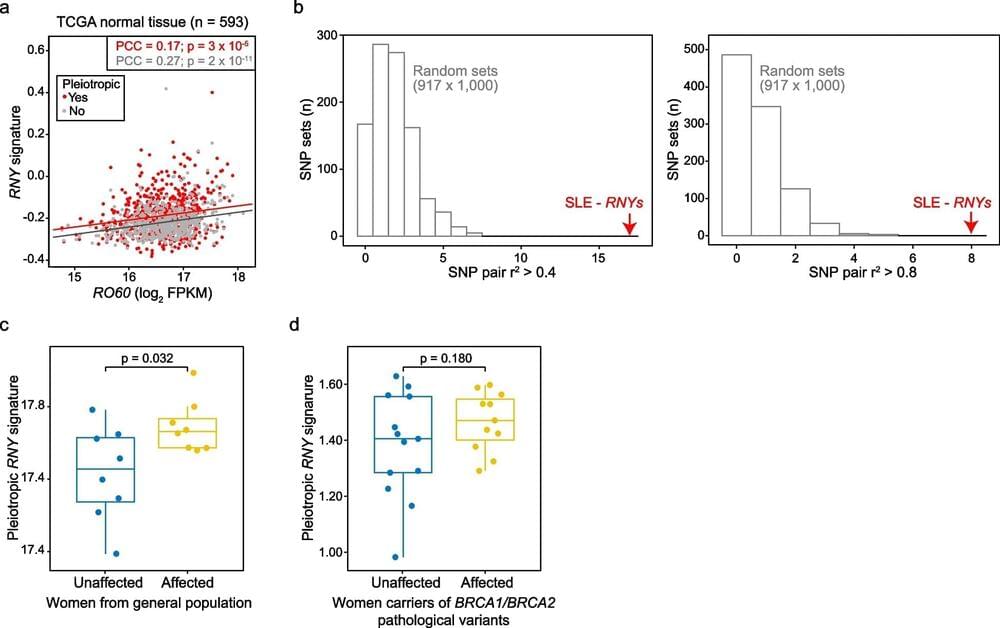
Alterations in the blood immune system found to increase cancer risk
An international team of researchers has identified the genetic basis and biological processes that influence cancer risk related to alterations in the number of immune cells present in the blood. This is a significant advance in understanding how the immune system can prevent the appearance of tumors.
The study, led by researchers from the Institut Català d’Oncologia (ICO), the Bellvitge Biomedical Research Institute (IDIBELL), the Germans Trias i Pujol Research Institute (IGTP), and the Translational Genomics Research Institute in the United States, has been published in the journal Genome Medicine and represents a significant step towards a better understanding of how alterations in the immune system facilitate the onset of cancer.
The immune system is responsible for maintaining the integrity and function of the body by continuously protecting us from exogenous attacks, such as viruses and endogenous attacks, in this case, cancer. This gives it a central role in inhibiting carcinogenesis, and its disruption may increase the risk of cancer by allowing malignant cells to proliferate.
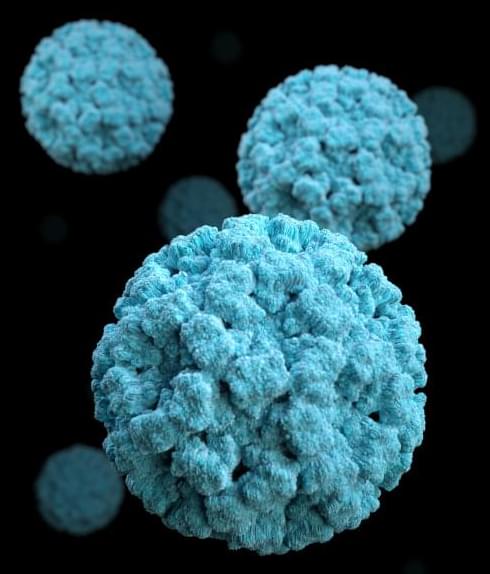
New Model for Norovirus Offers Promising Path Towards Countermeasure Development
Norovirus, a highly infectious virus that is the leading cause of diarrhea and vomiting in the U.S., has no approved therapeutics or vaccines to prevent its miserable effects. This is partly due to a lack of reliable animal models to study norovirus infection and predict how effective interventions would be in people. To solve this, NIAID scientists have developed an animal model to study human norovirus infection that could help facilitate the development of new vaccines and therapeutics to treat norovirus infection. Findings from this research were published Feb. 6 in Nature Microbiology.
Human norovirus causes illness in tens of millions of people in the U.S. each year and, in some cases, can result in hospitalization and even death. It is easily spread when people ingest foods, drinks or particles from surfaces contaminated by virus from the stool or vomit of an infected individual. Noroviruses are genetically diverse, with different genogroups—groups characterized by genetic similarity—of the virus infecting different species of animals. Several genogroups of noroviruses infect people without similarly infecting animals. This has led to difficulties in establishing an animal model for human norovirus infection.
Following up on earlier evidence that rhesus macaque monkeys could develop norovirus infections, a team of researchers led by scientists at NIAID’s Vaccine Research Center set out to determine whether macaques could serve as an effective animal model for the human disease. The macaques were challenged with several genotypes of human noroviruses at once. Throughout the experiment, the animals were kept in biocontainment, and their health and behavior were carefully monitored. Levels of virus in the animals’ stool were measured, and antibodies against norovirus in the animals’ blood serum were analyzed. The researchers found that the macaques were susceptible to viral infection with at least two genotypes of norovirus, with similar antibody responses, shedding of virus in stool, and pathology as in human norovirus infection. Notably, the infections in the animals did not result in clinical symptoms, such as diarrhea and vomiting.
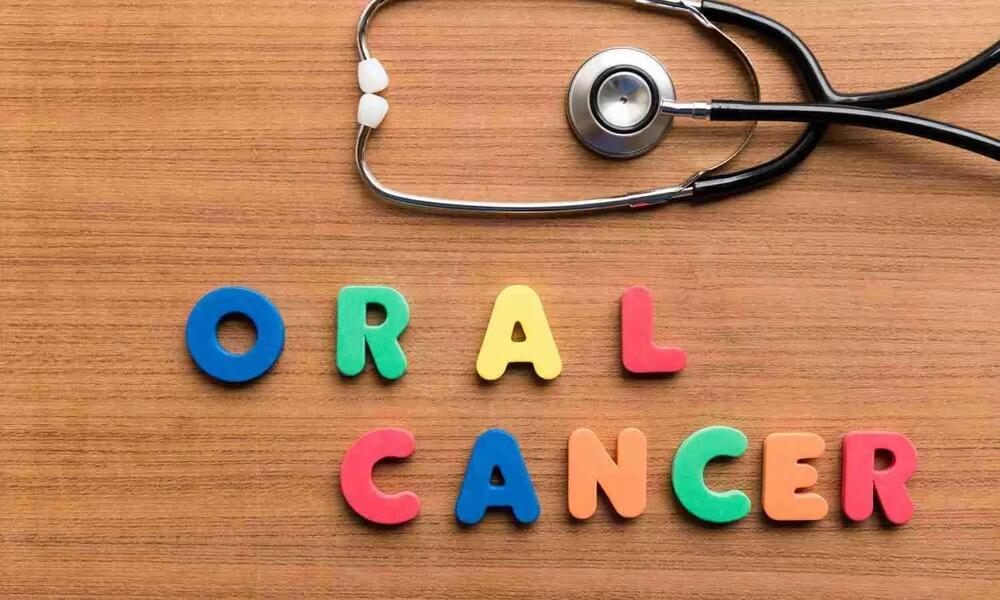
Brush biopsy enables early detection of oral cancer without surgery
A new test invented by University of Illinois Chicago researchers allows dentists to screen for the most common form of oral cancer with a simple and familiar tool: the brush.
The diagnostic kit, created and patented by Guy Adami and Dr. Joel Schwartz of the UIC College of Dentistry, uses a small brush to collect cells from potentially cancerous lesions inside the mouth. The sample is then analyzed for genetic signals of oral squamous cell carcinoma, the ninth most prevalent cancer globally.
This new screening method, which is currently seeking commercialization partnerships, improves upon the current diagnostic standard of surgical biopsies-an extra referral step that risks losing patients who sometimes don’t return until the cancer progresses to more advanced, hard-to-treat stages.
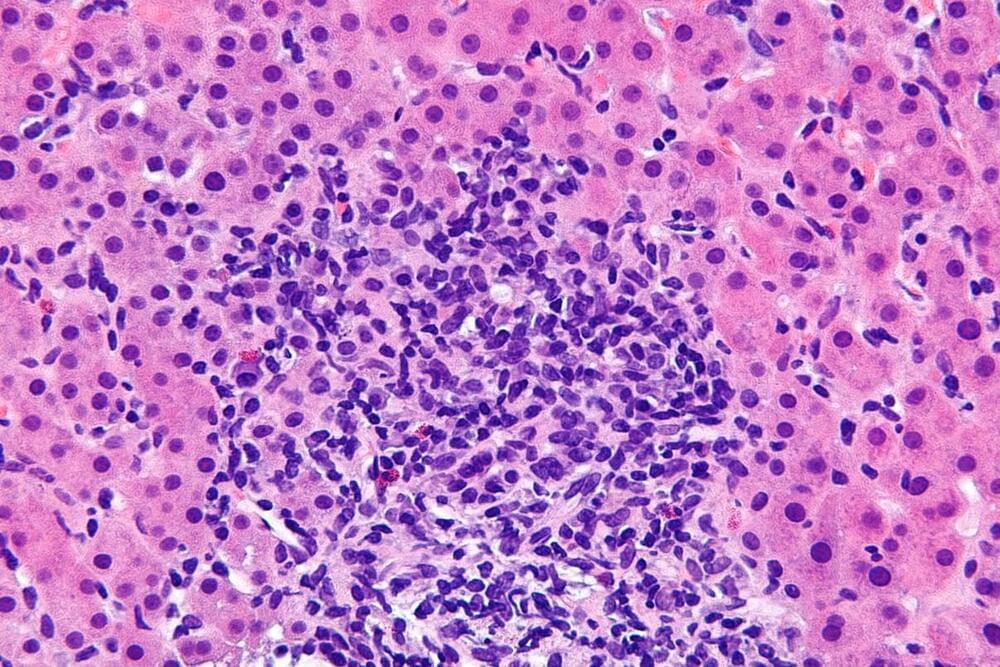
This ‘guardian’ molecule may make women more vulnerable to autoimmune diseases
Women are more likely than men to have conditions such as lupus, rheumatoid arthritis, and autoimmune hepatitis (depicted above in a cellular micrograph), in which their immune response attacks healthy, functioning parts of their body. Yet the reason behind this sex-based imbalance has long eluded scientists. Now, a study published last week in proposes that a molecule associated with the X chromosome may be partly to blame. Researchers noticed that many of the proteins commonly targeted by the immune system in people with autoimmune diseases had something in common: They help a molecule called Xist carry out its function. Xist molecules act a bit like quality control inspectors for women’s extra X chromosomes, preventing them from producing a toxic amount of proteins. The scientists suspect that when immune cells encounter large bunches of these Xist-related proteins—for instance, when a dead cell spills them into the bloodstream—they may react by making antibodies to attack them throughout the body. To test the idea, the team studied genetically engineered mice in which both males and females produced Xist. Like their female counterparts, these males were also at an increased risk of developing severe cases of lupus. The researchers also found that people with autoimmune disorders had more antibodies for Xist-related proteins in their blood. Still, Xist molecules may not be the only factor at play: Experts note that some people produce these Xist-related antibodies without developing autoimmune disorders, reports.
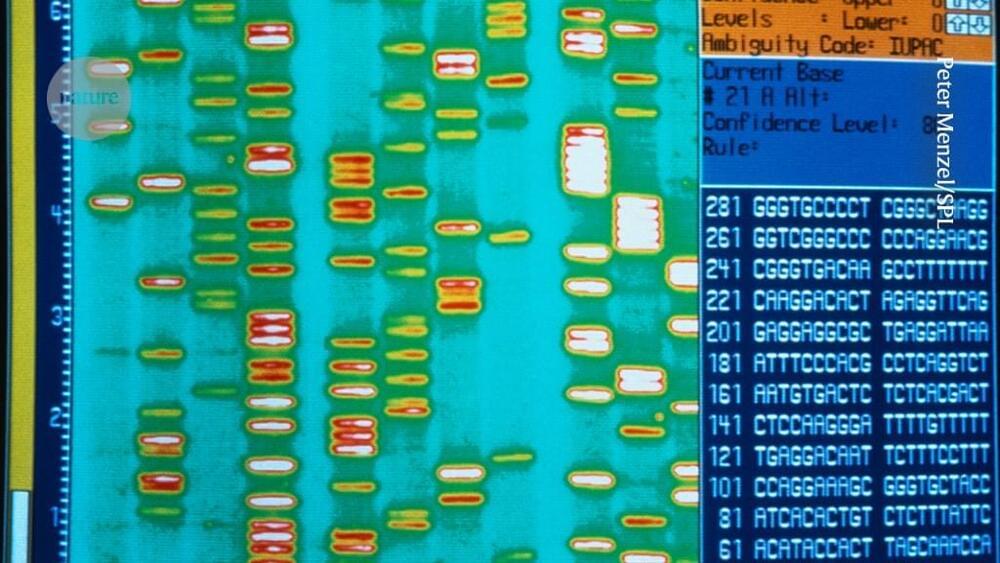
It’s time to admit that genes are not the blueprint for life
Ball is not alone in calling for a drastic rethink of how scientists discuss biology. There has been a flurry of publications in this vein in the past year, written by me and others2–4. All outline reasons to redefine what genes do. All highlight the physiological processes by which organisms control their genomes. And all argue that agency and purpose are definitive characteristics of life that have been overlooked in conventional, gene-centric views of biology.
This burst of activity represents a frustrated thought that “it is time to become impatient with the old view”, as Ball says. Genetics alone cannot help us to understand and treat many of the diseases that cause the biggest health-care burdens, such as schizophrenia, cardiovascular diseases and cancer. These conditions are physiological at their core, the author points out — despite having genetic components, they are nonetheless caused by cellular processes going awry. Those holistic processes are what we must understand, if we are to find cures.
Ultimately, Ball concludes that “we are at the beginning of a profound rethinking of how life works”. In my view, beginning is the key word here. Scientists must take care not to substitute an old set of dogmas with a new one. It’s time to stop pretending that, give or take a few bits and pieces, we know how life works. Instead, we must let our ideas evolve as more discoveries are made in the coming decades. Sitting in uncertainty, while working to make those discoveries, will be biology’s great task for the twenty-first century.
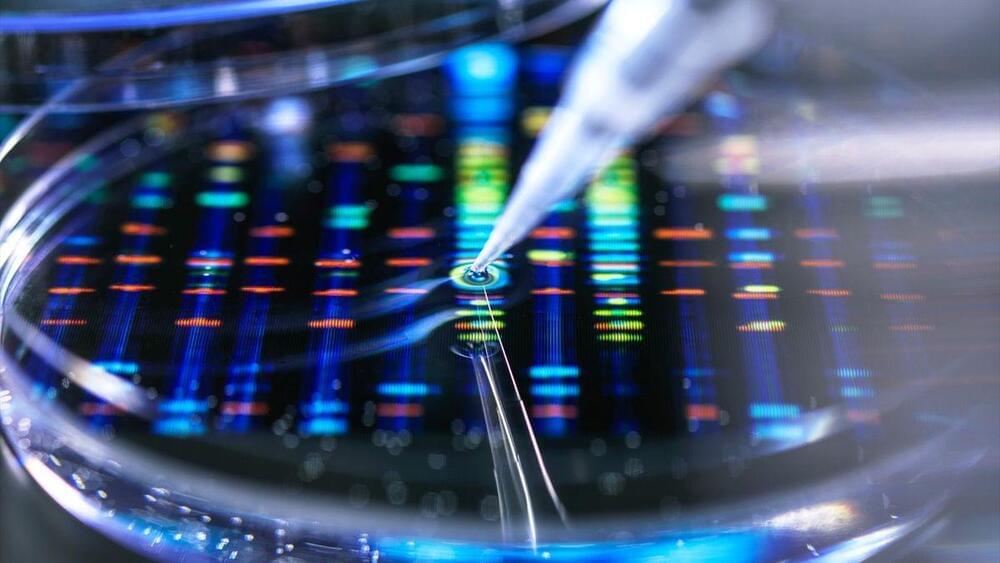
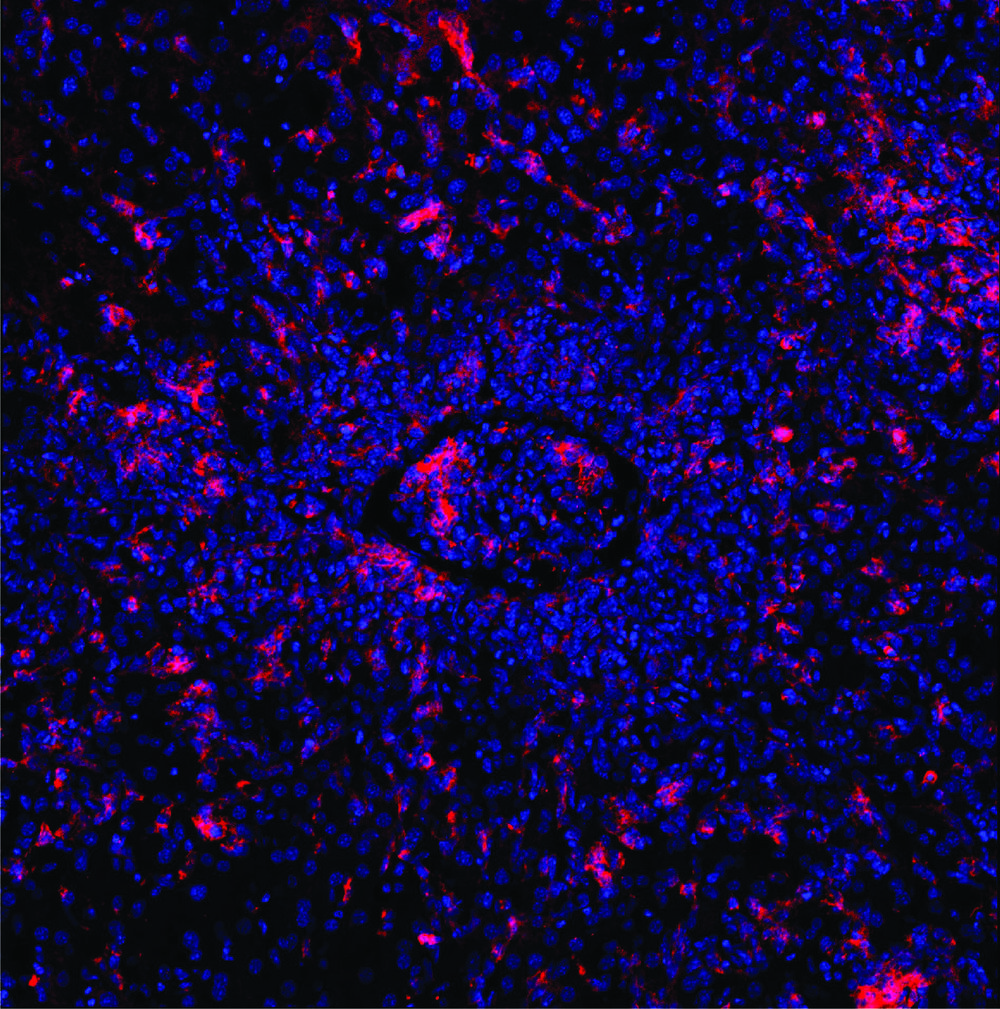
Gene editing precisely repairs immune cells
Some hereditary genetic defects cause an exaggerated immune response that can be fatal. Using the CRISPR-Cas9 gene-editing tool, such defects can be corrected, thus normalizing the immune response, as researchers led by Klaus Rajewsky from the Max Delbrück Center now report in Science Immunology.
Familial hemophagocytic lymphohistiocytosis (FHL) is a rare disease of the immune system that usually occurs in infants and young children under the age of 18 months. The condition is severe and has a high mortality rate. It is caused by various gene mutations that prevent cytotoxic T cells from functioning normally. These are a group of immune cells that kill virus–infected cells or otherwise altered cells.
If a child with FHL contracts a virus—such as the Epstein-Barr virus (EBV), but also other viruses—the cytotoxic T cells cannot eliminate the infected cells. Instead, the immune response gets out of control. This leads to a cytokine storm and an excessive inflammatory reaction that affects the entire organism.